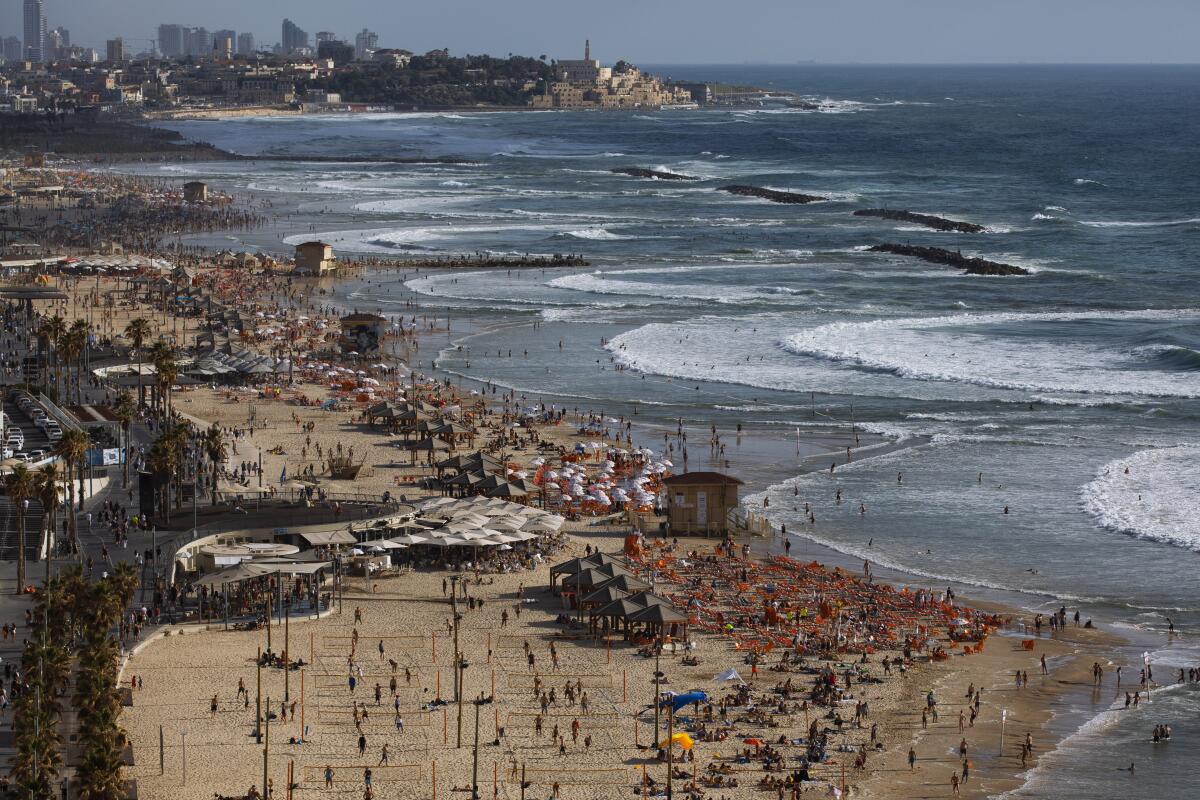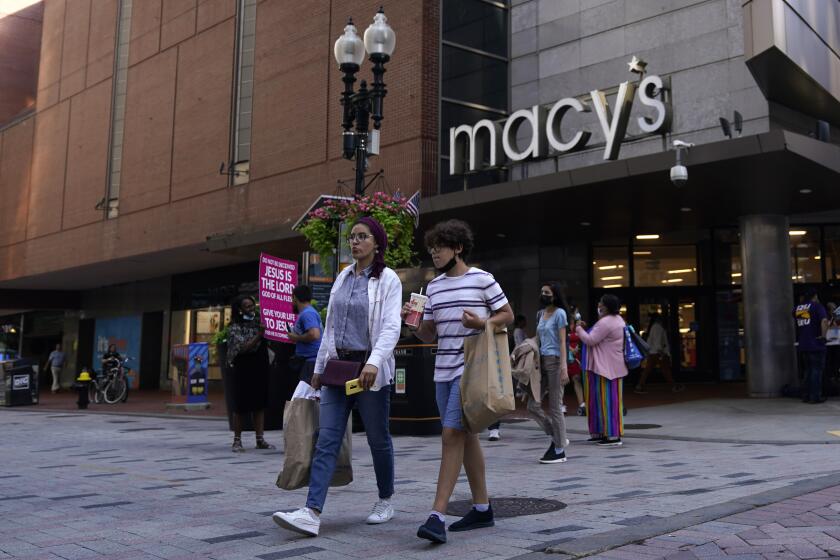Tel Aviv is the world’s most expensive city, new report says. L.A. ranks 9th

- Share via
TEL AVIV — Residents of Israel’s seaside metropolis, Tel Aviv, have for years complained of how expensive it is, with living costs taking a big chunk out of their paychecks.
A new report backs them up. Tel Aviv is the world’s most expensive city to live in, according to the Economist Intelligence Unit, a research group linked to the Economist magazine.
The city, previously ranked fifth on the list, has now surpassed other pricey places such as Paris and Singapore, which were tied for second place. Hong Kong and Zurich, Switzerland, rounded out the top five. New York was ranked sixth and Los Angeles ninth.
Economists attribute Tel Aviv’s emergence at No. 1 to a strong appreciation of the Israeli shekel against the dollar. In its report Wednesday, the Economist Intelligence Unit also pointed to a rise in grocery and transport costs. The report did not include housing prices — another common complaint among young professionals and families trying to make ends meet in the bustling city.
“It’s really hard to live here. You pay the rent and you pay for something small and you live, like, from paycheck to paycheck, so it’s really hard,” said Ziv Toledano, a transplant from northern Israel. He said his expenses have nearly doubled in Tel Aviv.
Israeli news outlets frequently compare prices of basic goods in Israel with those in other Western nations, reinforcing for residents what they have felt in their wallets for years: that the country is far more expensive than others.
Tel Aviv is Israel’s financial and cultural hub. It boasts a thriving high-tech scene, world-class restaurants and a stretch of Mediterranean beach lined by gleaming new hotels and condominiums.
Are inflation fears unreasonable? It depends on how you’re spending your money.
The shekel is one of the world’s strongest currencies, with its value buoyed in large part by heavy foreign investment in the local high-tech scene.
Dan Ben-David, head of the Shoresh Institution for Socioeconomic Research and an economist at Tel Aviv University, said goods and services in Israel in general are more expensive than in other countries. Tel Aviv is more expensive because it is the country’s economic hub, with high-paying tech jobs drawing talent from across the country, which drives up prices of food and rent.
“Israel is expensive, and in that regard Tel Aviv is more expensive than other places in Israel because that’s where the good jobs are,” he said.
The city draws even more Israelis wishing to live close to its vibrant cultural and social scene. Compounding the issue, Ben-David said, is major congestion leading into the city and inadequate transit to its suburbs and surrounding cities, making more people want to reside in the city itself.
Purchases of goods and services, unadjusted for changes in prices, increased 1.3% last month, the most since March, the Commerce Department says.
That, along with foreign buyers, has sent real estate prices skyrocketing. Purchasing an apartment in Tel Aviv is almost unattainable for the average Israeli: Even modest apartments in desirable areas can cost 4 million shekels, or more than $1.2 million.
A decade ago, hundreds of thousands of Israelis took to the streets to demand a solution to the rising cost of living.
Successive Israeli governments have struggled to create better job opportunities in other parts of the country, and attempts to extend public transit are ongoing but slow.
More to Read
Sign up for Essential California
The most important California stories and recommendations in your inbox every morning.
You may occasionally receive promotional content from the Los Angeles Times.












